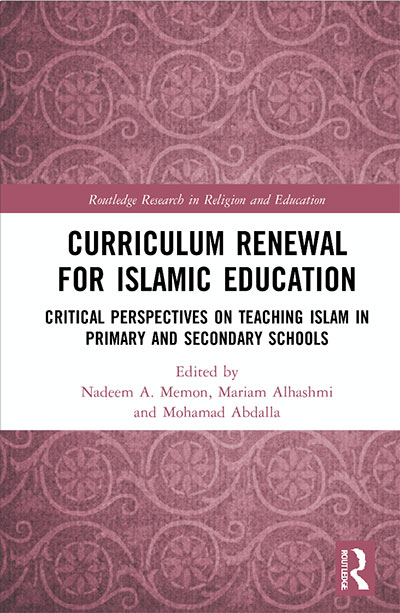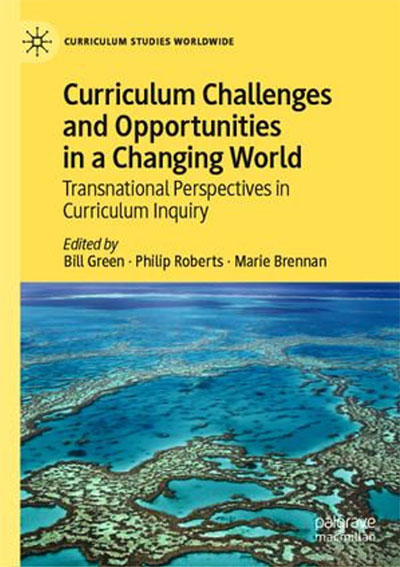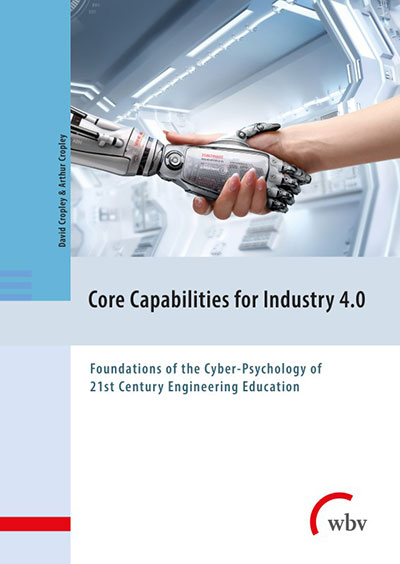The latest books from UniSA researchers
- Curriculum Renewal for Islamic Education
- Curriculum Challenges and Opportunities in a Changing World
- Core Capabilities for Industry 4.0: Foundations of the Cyber-Psychology of 21st Century Engineering Education
Curriculum Renewal for Islamic Education

A new book, Curriculum Renewal for Islamic Education: Critical Perspectives on Teaching Islam in Primary and Secondary Schools, co-edited by UniSA senior lecturer in Islamic Education and Pedagogy Dr Nadeem Memon and the director of the Centre for Islamic Thought and Education Professor Mohamad Abdalla AM, demonstrates why and how it is necessary to redesign Islamic Education curriculum in the K-12 sector globally.
From Western public schools that integrate Muslim perspectives to be culturally responsive, to public and private schools in Muslim minority and majority contexts that teach Islamic studies as a core subject or teach from an Islamic perspective, the volume highlights the unique global and sociocultural contexts that support the disparate trajectories of Islamic Education curricula.
Divided into three distinct parts, the text discusses current Islamic education curricula and considers new areas for inclusion as part of a general renewal effort that includes developing curricula from an Islamic worldview, and the current aspirations of Islamic education globally. By providing insights on key concepts related to teaching Islam, case studies of curriculum achievements and pitfalls, and suggested processes and pillars for curriculum development, contributors present possibilities for researchers and educators to think about teaching Islam differently.
This text will benefit researchers, doctoral students, and academics in the fields of secondary education, Islamic education, and curriculum studies. Those interested in religious education as well as the sociology and theory of religion more broadly will also enjoy this volume.
The book is available from Routledge.
Curriculum Challenges and Opportunities in a Changing World

A new book, Curriculum Challenges and Opportunities in a Changing World: Transnational Perspectives in Curriculum Inquiry, co-edited by UniSA Adjunct Professor Marie Brennan, brings together voices and perspectives from across the world and draws in a new generation of curriculum scholars to provide fresh insight into the contemporary field.
By opening up curriculum studies with contributions from 12 countries – including every continent – the book outlines and exemplifies the challenges and opportunities for transnational curriculum inquiry. While curriculum remains largely shaped and enabled nationally, global policy-borrowing and scholarly exchange continue to influence local practice. Contributors explore major shared debates and future implications through four key sections: Decolonising the Curriculum; Knowledge Questions and Curriculum Dilemmas; Nation, History, Curriculum; and Curriculum Challenges for the Future.
The book is available from Palgrave Macmillan.
Core Capabilities for Industry 4.0: Foundations of the Cyber-Psychology of 21st Century Engineering Education

UniSA Professor of Engineering Innovation David Cropley has had a new book published, Core Capabilities for Industry 4.0: Foundations of the Cyber-Psychology of 21st Century Engineering Education. The book was co-written with Prof Arthur J Cropley from the University of Hamburg.
In the era of Industry 4.0, demands on engineers are changing. New opportunities arising from developments in artificial intelligence require not only lifelong learning but also a high degree of creativity.
The authors of this book provide new impulses for the design of an Industry 4.0-oriented engineering education that promotes the growth of competencies for the working world of tomorrow.
Building on basic information on Industry 4.0, concepts from areas such as problem solving, knowledge management, lifelong learning and creativity research are presented and their usefulness for future-oriented engineering education reviewed. The book is aimed not only at teachers and students, but also at researchers and practitioners.
The book is available from WBV.
Other Stories
- Don’t worry, the kids are cool if you cash in on their inheritance
- Flinders Ranges virtual tourists to be ‘teleported’ into the deep past for World Heritage bid
- Do vegan diets make kids shorter and weaker?
- Could genetics hold the key to preventing SIDS?
- Achievements and Announcements
- Companies which pay scant attention to psychological health put staff at higher risk of depression
- Conserving coastal seaweed: a must have for migrating sea birds
- Video: How to understand and be understood
- Students gain international experience without leaving home
- How a UniSA student became the face of Adelaide youth lifestyle platform
- The latest books from UniSA researchers
- In Pictures: Camp Adelaide in Guangzhou and UniSA Sport winners




